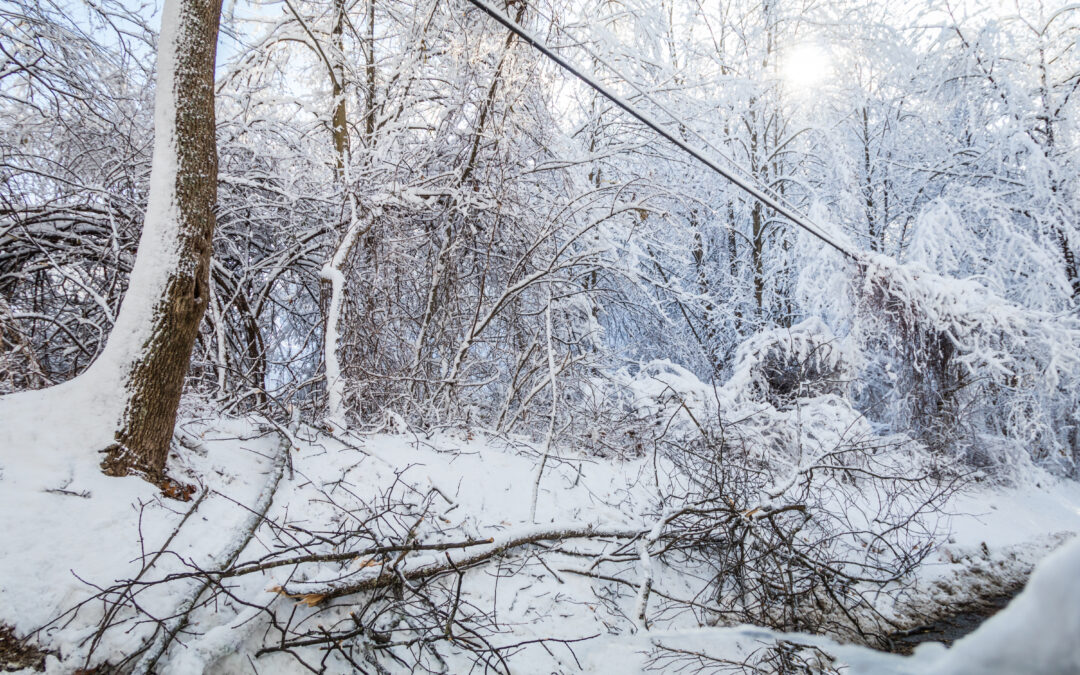How Winter Weather Impacts the Power Grid
The strain on the electrical grid during winter storms stems from both increased demand for heating and physical damage caused by freezing temperatures. Ice can weigh down power lines, leading to sagging or breakage. Freezing rain and sleet can accumulate on trees, causing branches to snap and fall onto power lines. Substations and transformers are also at risk of freezing, which can exacerbate outages.
Additionally, the widespread use of electric heat during cold weather puts significant stress on utilities or power companies. As temperatures drop, more households rely on electric heat, driving up power demand. This surge in usage can overwhelm the grid, making outages more likely and recovery times longer. These vulnerabilities highlight the importance of preparation for homes and businesses alike.
Solar Energy Systems: A Resilient Option
Homes equipped with solar energy systems and backup batteries are better prepared for power outages during severe winter weather. Solar panels, even in colder temperatures, can generate electricity as long as they receive sunlight. When paired with a backup battery system, solar energy can provide continuous power, even when the grid goes down.
Backup batteries store excess energy generated during the day, ensuring it’s available for use at night or during outages. This capability is invaluable during winter storms when grid reliability is uncertain. Batteries like the Tesla Powerwall 3, Enphase Battery 10c, or FranklinWH ap2 are designed to provide seamless power transitions, offering peace of mind during power loss events.
Homeowners with solar energy systems paired with battery backups have successfully weathered power outages caused by severe storms and grid failures. In real-world cases, residents with solar panel + battery systems have been able to use power for hours—or even days—during prolonged outages. During a severe winter storm, these systems allow households to keep the lights on, stay warm, and avoid the inconvenience and potential hazards of grid failures.
Tips for Preparing Your Backup Battery System
Enable Storm Readiness Features
Many modern battery systems include features designed for severe weather:
- Tesla Powerwall: Enable Storm Watch in the Tesla app to maximize battery charge before a storm.
- Enphase Battery: Use Storm Guard to prepare your system automatically when severe weather is forecasted.
- FranklinWH: Activate Emergency Backup or Storm Hedge modes to optimize energy storage.
Charge Your Battery Fully Before a Storm
Ensure your battery is fully charged before severe weather hits. Cold temperatures can reduce battery efficiency, so starting with a full charge maximizes runtime during potential outages.
Inspect and Maintain Your System
- Make sure your solar panels are properly maintenance and
- Inspect batteries and connections for any signs of wear or damage.
- Set up system alerts in your app to stay informed about battery performance and weather conditions.
Best Practices During Power Outages
- Conserve Energy: Limit the use of high-power appliances like washers and dryers to extend battery life.
- Prioritize Essentials: Focus on powering heating, lighting, and refrigeration during an outage.
- Stay Informed: Use apps like Tesla, Enphase, or FranklinWH to monitor system performance and receive updates.
- Practice Safety: Avoid attempting repairs on equipment during a storm. Contact professionals for assistance if needed.
Why Consider a Battery Backup System?
If you already have solar, adding a backup battery to your solar system provides a reliable solution for managing power outages. Beyond storm readiness, batteries allow you to store excess energy for later use, reduce reliance on the grid, and maintain energy independence. Whether you choose Tesla Powerwall, Enphase Battery, or FranklinWH, these systems are designed to provide uninterrupted power during severe weather.

